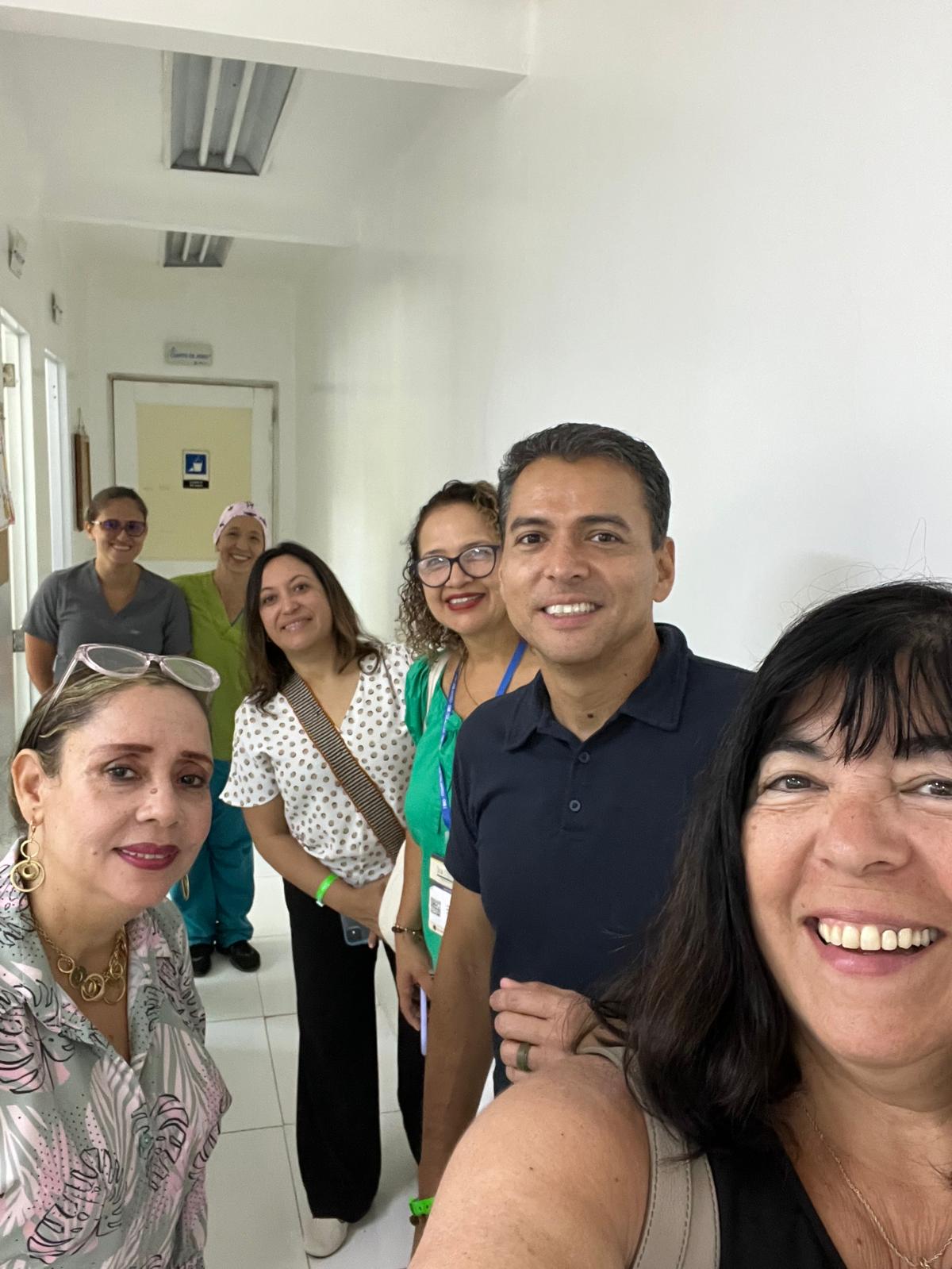
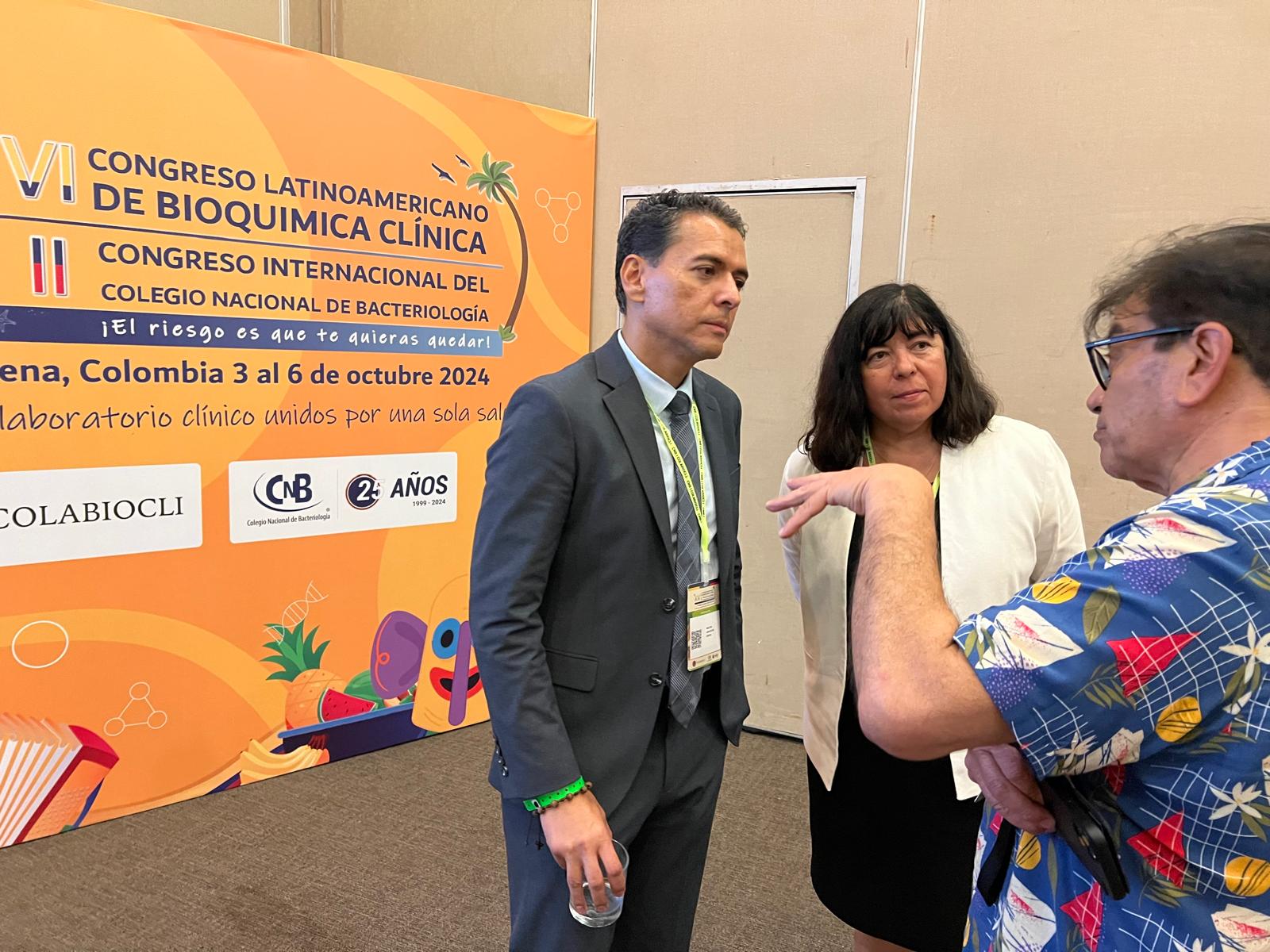
Gaviria Díaz attended a workshop held by ADLM and La Confederación Latinoamericana de Bioquímica Clínica (COLABIOCLI) to build on her already stellar 30-plus years of experience as a neonatal bacteriologist. Gaviria Díaz has traveled the world to assess other countries’ laboratory programs, opened her own lab, served on medical Boards, and participated in the planning of international congresses.
Gaviria Díaz’s attendance at that event was pivotal for her efforts. The risk assessment methods taught in the workshop helped her make a positive change in the lab, allowing them to get one step closer to overcoming the neonatal challenges in her country.
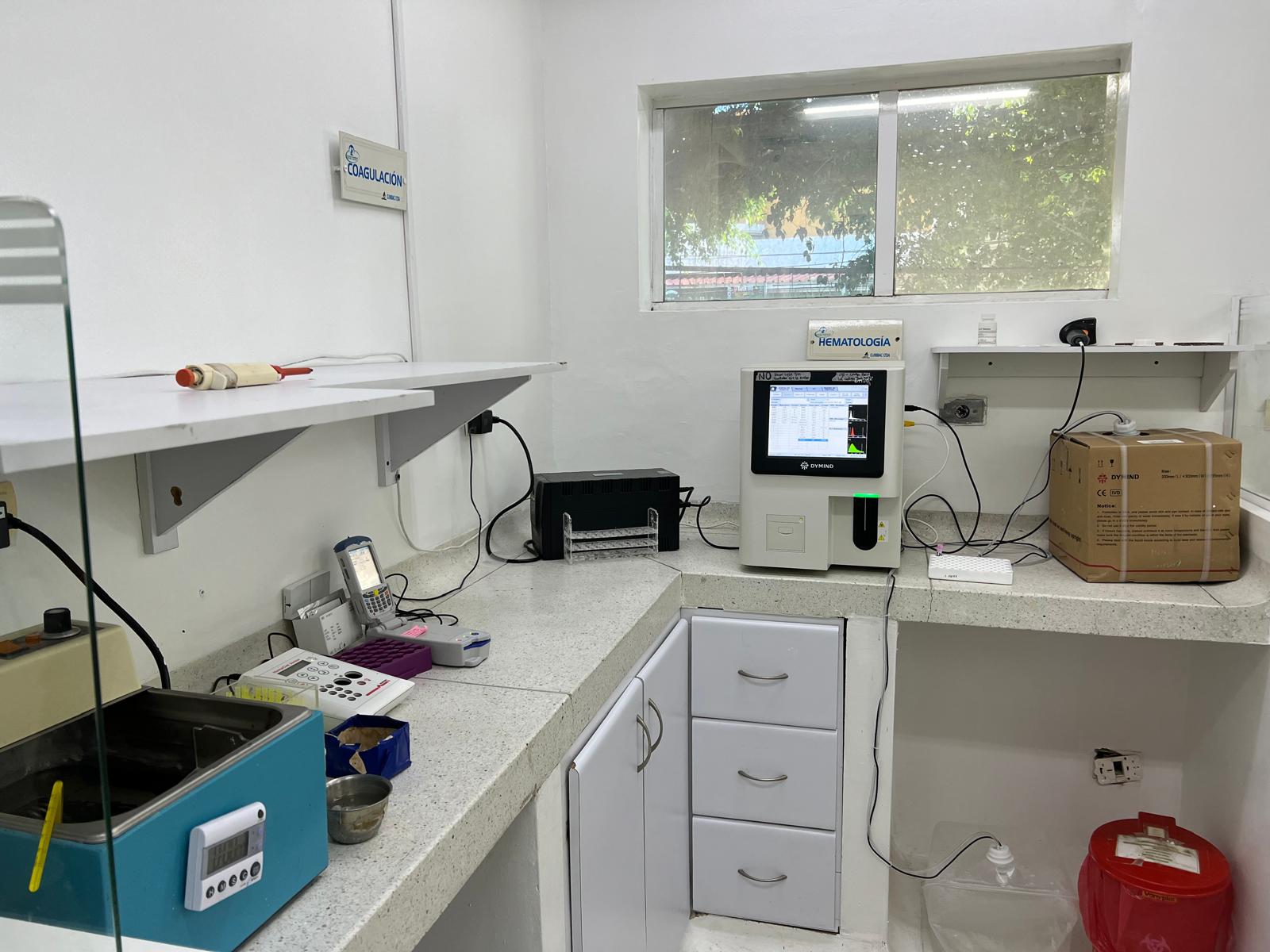
Dedication to community involvement
Gaviria Díaz works for Rafael Calvo C. Clinic, a public sector maternal and child health hospital in Cartagena. LAWG Chair Jessica Colon-Franco, PhD, DABCC, FADLM, visited the hospital.
“It was clear,” Colon-Franco said, “that she was well known among hospital leadership and had a strong rapport with hospital staff.”
But Gaviria Díaz sought to help her community more broadly. Twenty years ago, she also opened her own maternity clinic, taking immense pride in the services she provided.
She pointed out, “It’s not … a lab that handles thousands of patients. But the patients we handle, we handle with quality.”
Expanding neonatal screening
Colombia faces challenges in implementing an expanded neonatal screening law throughout the country.
“It is in the law,” Gaviria Díaz explains, “that the health institutions [are] an integral part of childbirth care.” But the problem is that many labs across the country are still waiting for the law to be implemented in their cities and towns. The institutions that she works in have the equipment to perform essential tests, but they are waiting for that change at the government level to bring their quality of care to the next stage.
Gaviria Díaz has reached out beyond her community to be a champion in neonatal screening. She’s served on several organizing committees of laboratory medicine congresses in Cartagena, traveled to assess neonatal programs in Peru, Mexico, and Argentina, and served on various medical boards. She took a risk and opened her own lab, where she first struggled with a lack of staff and an intense workload. Outside of the lab, she still seeks educational opportunities, and she attended ADLM’s event to find them.
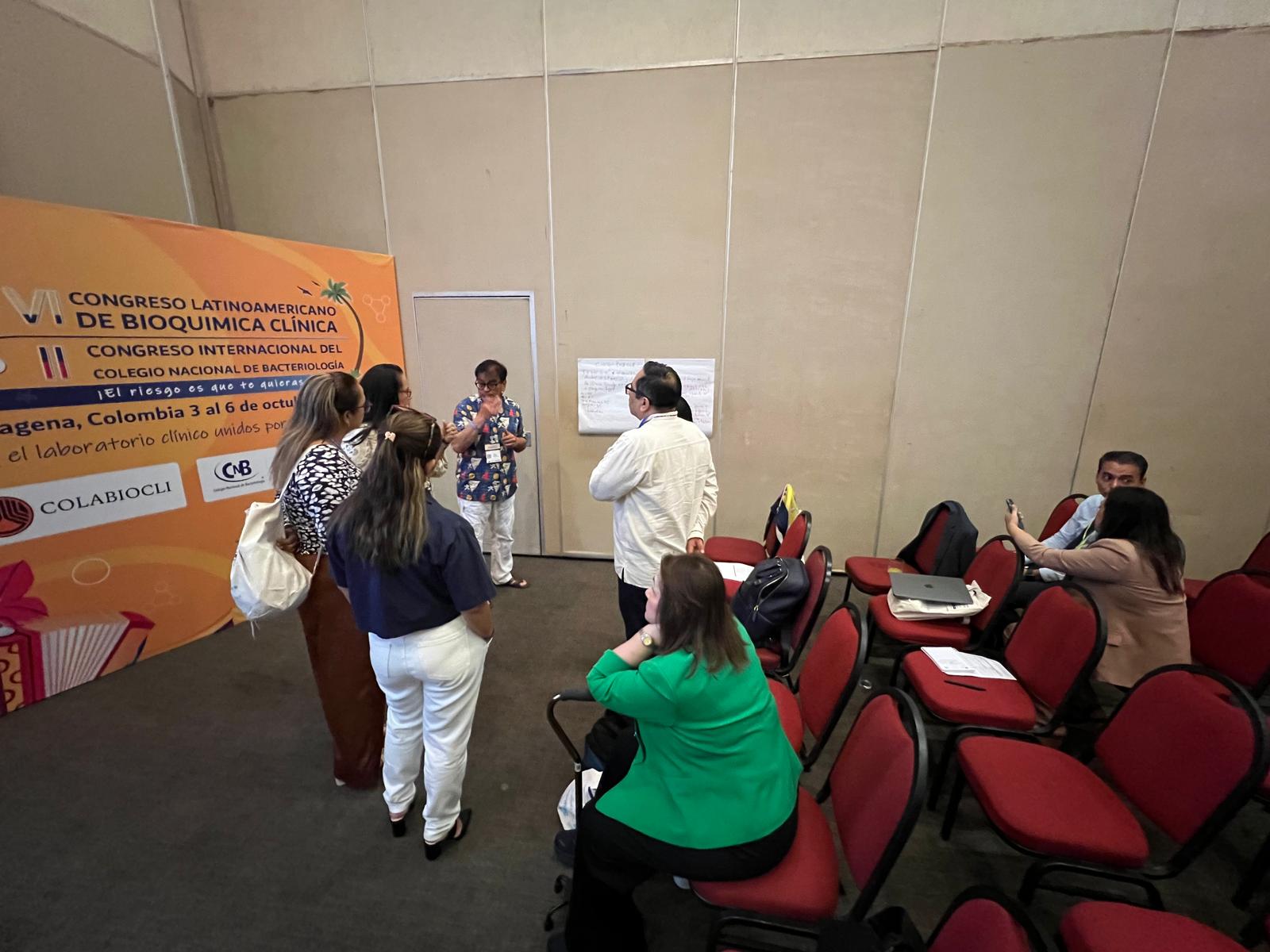
ADLM's workshop: A new hope
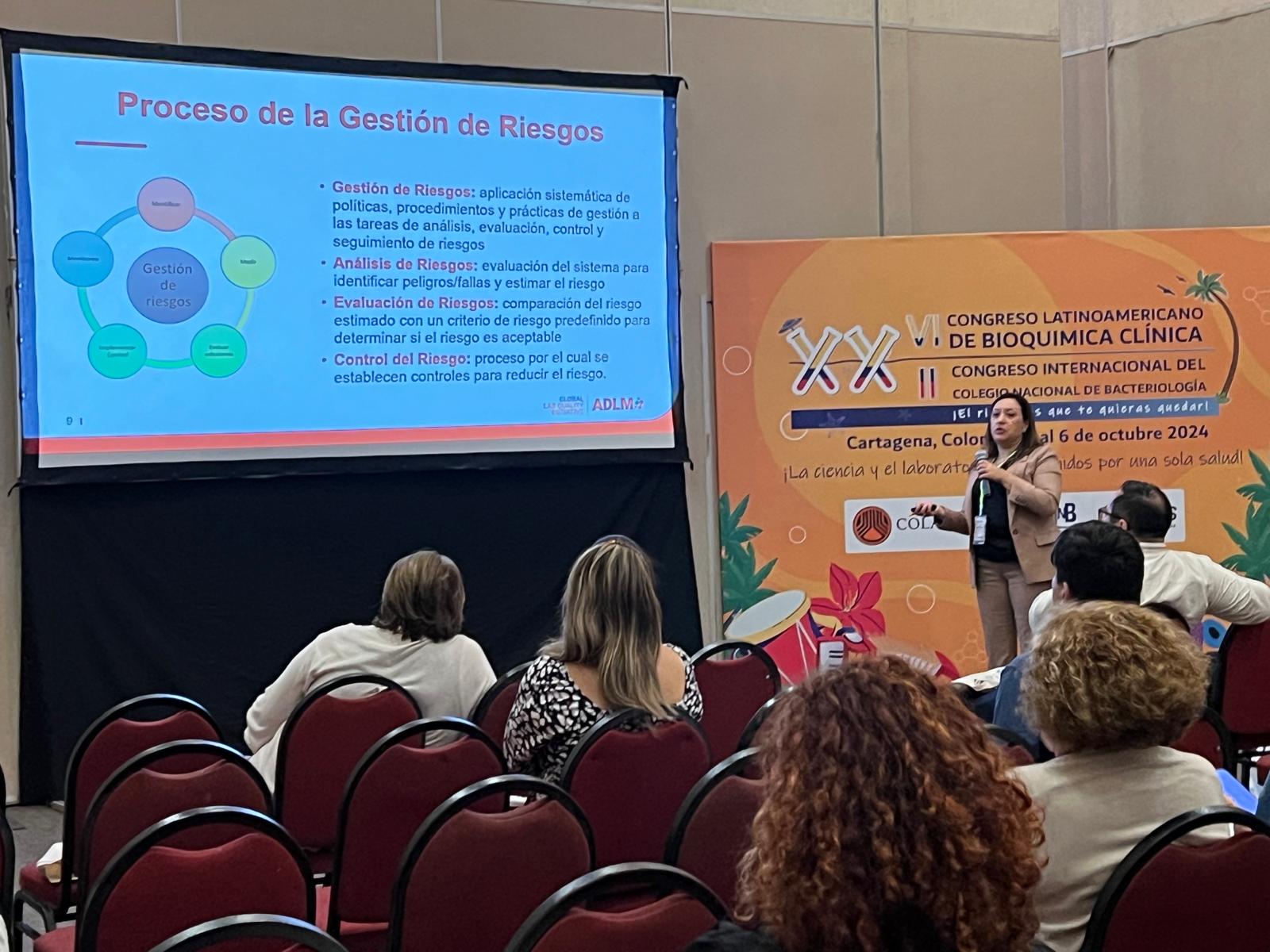
The presentation from Colon-Franco resonated with Gaviria Díaz and the challenges she faced in the lab regarding risk assessment. While the neonatal law’s implementation is still in progress, she returned to her work with newfound knowledge and opportunities to advance the work of her labs.
When Gaviria Díaz returned to her labs, she replicated the methods she learned in Colon-Franco's risk assessment presentation. And although it took time for her staff to adapt to the new methods, they were interested in them. Everyone remains hopeful that positive and impactful change will happen at the government level. But until that time, they are readying themselves, so they can make the changes as soon as they are able.
Although there are bumps in the road ahead, Gaviria Díaz remains diligent in producing the best services for the patient and seeking the implementation of the neonatal screening law. What motivates her the most is being told “doctor, you helped me. That’s worth [the] world. That’s worth everything.”
1. UNICEF. https://data.unicef.org/country/col/ (Access July 2025).
